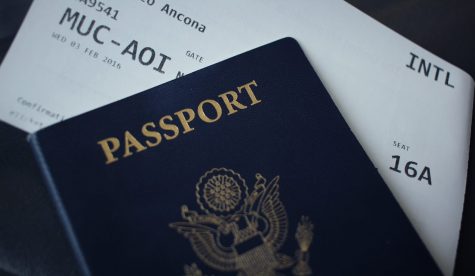How Burnout Affects Relationships
December 29, 2020
The normalization of a workaholic lifestyle has driven employees and students across the country to feelings of energy depletion and exhaustion, increased mental distance from activities, and feelings of negativity and cynicism. These symptoms have become so common that medical professionals have termed the mental health issue as “burnout syndrome”. According to a 2018 Deloitte survey of American professionals, 83% say when they are experiencing burnout, it negatively affects their personal relationships outside of their work environment.
Burnout occurs in five different stages and usually starts to affect personal relationships during the last three. The first phase, like most relationships, is the honeymoon phase. Individuals undertake a new task and start experiencing job satisfaction and high levels of commitment and energy. With growing awareness of the task becoming more difficult and consuming, stage four, the onset of stress arrives. This slowly turns into stage three which is chronic stress that starts to affect outside tasks. When burnout is referred to by medical professionals, they are diagnosing the fourth stage of the burnout process. This causes behavioral changes, an escapist mentality, self-doubt, social isolation, and physical health repercussions. The fifth stage of burnout is habitual burnout when the symptoms of burnout become embedded in an individual’s every-day life and classified as burnout syndrome. This leads to more serious conditions such as depression and chronic mental and physical fatigue.
One of the most common effects of burnout is the feeling of loneliness in relationships. The loneliness in these situations is not the result of purposeful self-isolation but is a result of the emotional exhaustion of workplace burnout. If an individual is feeling an extreme commitment to or an overbearing weight from their work, they are prone to feeling alone in their profession and misunderstood in their personal lives. Feelings of social disconnection can weaken the immune system, shorten life, and raise rates of anxiety and depression. It also decreases longevity by 70%, towering over obesity, drinking and smoking.
Workplace burnout creates isolation and social deprivation among employee relationships. Having several employees overworking and not others creates social stratification between coworkers. Those tasked with more demanding jobs of high importance are placed in their own social category in the work environment. Those with less straining tasks are usually happier and less stressed but are less likely to socialize with the overworked. The larger separation of departments initiations more feelings of loneliness. Often the lesser worked in a company do not understand the feelings that the overworked are experiencing.
Burnout is prone to ruining organizational success at the corporate level. With 50% of workers feeling burnt out across different professions, recent studies are starting to show that loneliness in the workplace is costing both employers and the U.S health care system, billions of dollars each year. Managers and corporate leaders need to make changes to battle the growing loneliness rates among coworkers.
Brooke Kruger is a Dakota Student Opinion Writer. She can be reached at [email protected]












